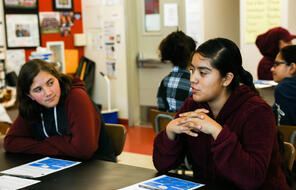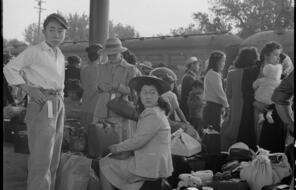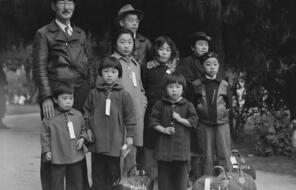Masterpieces are masterpieces not because they are flawless, but because they've tapped into something essential to us, at the heart of who we are and how we live.
This was one of the first books I wanted to encourage other people to read. Read this book, read this book, read this book.
Half a century later, the novel is still required reading.
I taught high school for 25 years, and just about every year, I did To Kill A Mockingbird with students. And it was a book that, perennially, they read because they wanted to, not because they had to. So it cast the same spell for my students as it had for me.
Which particular scene resonates with you that you remember and will probably remember forever? Nick.
When Atticus is questioning my Mayella Ewell and it's so obvious to everyone in that courtroom that she just made the whole thing up, that Tom Robinson was innocent, and that the racism in that time was so great they couldn't let a black man who was obviously innocent go free.
Tom was broken by the court case and he really didn't want to live or didn't want to be in prison, in a world like that anymore, where he could be prosecuted for no just reason. And the pain that Mrs. Robinson felt when Atticus told her that Tom had been shot 17 times, that will really stick with me for a while. And I think about it a lot.
It really teaches about judgment. I mean, in the book, how do you judge Bob Ewell? Do you judge him as some maniac or-- you feel bad for him. You can't-- it's all about judgment and that's in life too. You have to make decisions.
They dip their foot into the water and then they ease into the stream and the story and the language and the voice, in particular, take them down a smooth ride and then you don't have to worry about whether or not they're doing the assignments. They're reading voluntarily.
Why has this book has been so special to people over the years?
This book, the truth that it told, it helped people go see what it was really like. This book told you what I was really like and the people, of course, talk differently, they act differently, but they're same people-- same people, different time period.
All right, now, what about the language? How does it make you feel, Clifford? Is it going to keep you from writing the book?
No.
No. All right, what do you think?
It is offensive because that stands for, like, you didn't know anything, ignorant, and you just--
What stands for that?
The n-word.
Even though I use those, that language, it kind of influences you to keep reading.
Yeah, OK. I wanted us to talk a little bit about the impact and how important this novel is.
The book inspired me because it showed how one person can change the whole world.
But still has this galvanizing effect on a young reader. I mean, it remains as relevant today as it was the very day that it was written. It never ages.














